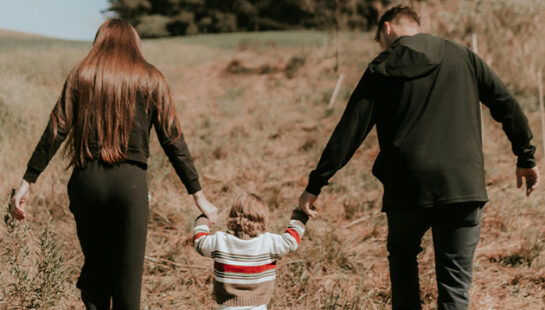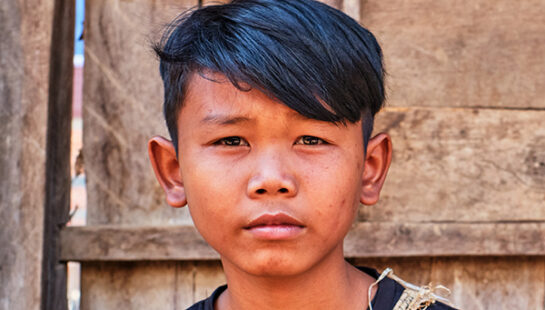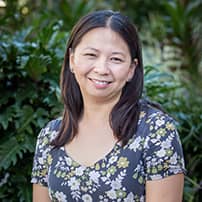Jesus loves children. That love is evident in Matthew 18 and 19 when Jesus instructs us not to hinder them or cause them to sin. Jesus calls us to welcome children in his name. He even calls us to humble ourselves and become like children. ‘The kingdom of heaven belongs to such as these,’ he said in Matthew 19:14.
Baptist World Aid shares Jesus’ love and concern for children, so recently led a study—through its international program arm, Transform Aid International (TAI)—to identify the specific impacts COVID-19 was placing on children and youth in developing countries.
‘While much has been written about the disproportionate effect of this crisis on developing countries, little has been documented on specific impacts to children and youth in these contexts,’ said TAI’s Mukunda Adhikari, co-author of the study.
The evidence we gathered from this study provides clear examples of how COVID-19 is affecting the most vulnerable group in any humanitarian context: children and youth.
What Does The Study Say?
The study—titled, The Effects of COVID-19 on Children & Youth, and Program Adaptations for Sustainable Development: Learning from Asia and Africa—found children in six countries in Asia and Africa are experiencing three specific impacts:
- An increase in negative emotional and psychological symptoms.
- Significant negative impact to their education and study.
- Heightened concern due to the loss of family income and food security within the family.
‘The evidence we gathered from this study provides clear examples of how COVID-19 is affecting the most vulnerable group in any humanitarian context: children and youth,’ he said.
The study surveyed 906 children and youth aged 5–20, in Bangladesh, Cambodia, Nepal, Philippines, Sri Lanka, and Uganda. Each were asked 17 questions grouped around themes including their knowledge of COVID, how they are feeling, the impact COVID has had on their education and extra-curricular activities; and what coping mechanisms they use.
‘The questions simply reflected what we were asking ourselves at the time, which is: How is COVID-19 impacting children and youth in the countries where our partners work?’ said study co-author, Rebekah Cochrane.
Children Thinking About Immediate And Long Term Future
Conducting a study of this nature during a pandemic was not without its challenges, but the results showed that children were thinking in both the immediate and long term.
‘The family economic situation—which included food security and the loss of income—was a consistent theme throughout the survey, as were longer term concerns like missing out on education and what that would mean for future job opportunities and employment,’ Adhikari said.
It was clear that older children and youth are active change agents in their communities.
But the survey also revealed some nice surprises, such as children as young as five taking part in the survey, finding that ‘child clubs’—which Baptist World Aid is a strong proponent of—were highly effective at raising awareness about COVID-19 in communities, and that children are extremely resilient, adopting a range of coping mechanisms such as art and crafts, play, gardening, and mentoring and teaching younger children.
‘It was clear that older children and youth are active change agents in their communities,’ Cochrane said. ‘They communicate COVID awareness information, monitor hygiene protocols, support younger children with home learning, and raise child protection concerns through hotlines and other community protection mechanisms.’
Adapting Projects To Address Impacts On Children And Youth
The study’s second phase examined how local NGOs were adapting their projects to address the impacts children and youth were facing.
The study found that local NGO/partners across the six countries studied were implementing three key adaptations into their regular work with communities in poverty:
- Incorporating COVID-19 related activities into regular programming. This included:
- Training staff and volunteers on mental health and psychosocial support for children.
- Using a storytelling approach to explain COVID-19 to children.
- Initiating Google classrooms.
- Using digital media/mobile phones to communicate hygiene messaging.
- Developing and sharing self-learning approaches/materials for school children.
- Supporting caregivers to access alternative incomes.
- Offering vocational training to youths for alternative livelihoods.
- Strengthening local civil society groups by working with child protection committees and increasing the focus on child protection and gender-based violence (GBV).
- Strengthening the reach and quality of support to young people and their families by encouraging local groups to adopt digital communication in place of in-person meetings and moving from larger to smaller groups for peer support.
A Child-Led Approach To Development
‘Children are holders of rights, and we believe they have a legitimate claim to participate in their own development,’ Cochrane said.
‘We therefore encourage a child rights approach to community development because it enables children and youth to participate in change.’
That approach comes through the Children, Youth and Communities for Change Program (CYCC), a long-term, rights- and strengths-based community development intervention. CYCC implementing partners work directly with children and youth—and consequently with parents, community leaders and government—on issues that are important to young people.
Children are holders of rights, and we believe they have a legitimate claim to participate in their own development.
‘The study demonstrates how local country partners are being proactive and adapting their programs to address the challenges and setbacks brought about by COVID-19, so they can pursue continued sustainable development,’ Adhikari said.
‘Because of the study, we have a much better understanding of how COVID is affecting children and youth,’ he said.
The kingdom of heaven belongs to such as these.
Transform Aid International’s study, The Effects of COVID-19 on Children & Youth, and Program Adaptations for Sustainable Development: Learning from Asia and Africa, was presented in early July at the Research for Development Impact Conference which was co-hosted by the University of Queensland.
There has never been a more urgent time to partner with a child. When you become a Child Sponsor, you support a child to learn, grow and lead their communities out of poverty.



 Heather Keith,
Heather Keith,

 Sophia Russell,
Sophia Russell,